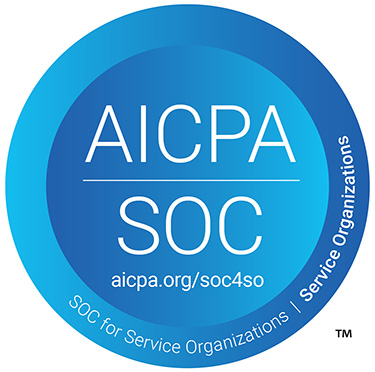What Are Mass Payout Solution?
Mass payment systems are specialized financial tools designed to streamline the process of simultaneously distributing funds to multiple recipients. They are crucial in today’s interconnected business landscape, where companies regularly need to efficiently compensate large numbers of vendors, contractors, affiliates, or employees.
Traditionally, managing numerous individual payments posed significant challenges, including time-consuming manual processes, high error rates, and substantial administrative overhead. Mass payout services address these pain points by automating and centralizing the payment workflow. They enable businesses to initiate hundreds or thousands of transactions in various currencies and payment methods with a single batch process.
By leveraging these systems, organizations can dramatically reduce processing time, minimize errors, ensure compliance with financial regulations, and provide a better experience for payment recipients. As the gig economy and global marketplaces expand, the demand for robust mass payout solutions is only expected to grow.
The Challenges of Traditional Mass Payouts
Outdated methods of handling mass payouts present hurdles for organizations of all sizes. Data entry, check writing, and reconciliation consume vast amounts of time, diverting valuable resources from core business activities and significantly hindering overall productivity. The human element inherent in manual payout systems also introduces a high risk of errors.
Incorrect payment leads to financial discrepancies and necessitates time-consuming and costly corrections, further stretching resources. The lack of transparency typical of older methods, which offer limited visibility into payment statuses and transaction histories, compounds this issue. Such opacity complicates reconciliation efforts and leaves businesses struggling to maintain clear financial oversight.
Additionally, security concerns loom large in manual payout processes. Handling sensitive financial data exposes organizations to increased risks of fraud and data breaches, threatening financial stability and reputation. As businesses grow, the limitations of these traditional systems become even more apparent. Rising transaction volumes strain existing processes, leading to delays and errors that can damage relationships with partners and contractors.
These multifaceted challenges underscore the pressing need for modern, automated solutions capable of streamlining mass payouts, enhancing security, and scaling effortlessly with business growth.
Understanding Mass Payout Regulations and Compliance
The right mass payment platform becomes a partner to help you navigate the regulatory landscape, providing peace of mind and curtailing legal risks associated with mass payments:
Tax Reporting and Withholding
Mass payouts require complex 1099 reporting, which varies by payee type. Robust platforms simplify this process by automating tax form creation and ensuring accuracy. Such automation helps businesses avoid errors and potential penalties associated with misreporting.
Anti-Money Laundering (AML) and Know Your Customer (KYC)
AML and KYC regulations are crucial in preventing financial crimes. Effective mass payment solutions incorporate built-in checks to verify payee identities and flag suspicious transactions. These automatic checks protect businesses and maintain the integrity of the financial system.
Data Security and Privacy
Businesses that send mass payouts must comply with PCI DSS to protect data, avoid sanctions, and mitigate risks of breaches and penalties. Leveraging compliant payout platforms streamlines operations while maintaining regulatory adherence.
International Regulations
Global payouts require businesses to carefully navigate complex regulations like GDPR in Europe and OFAC restrictions in the US. Leading payout platforms offer features to help businesses comply, reducing the risk of costly violations.
Mass Payouts and the Future of Payments
As the future of mass payments becomes increasingly fast, flexible, and digital, businesses that embrace innovations will lead in offering versatile and efficient payout options.
- Real-time payments: New payment solutions enable near-instant processing, improving cash flow for businesses and recipients. Faster, more efficient payment experiences are now standard.
- Digital wallets and mobile payments: Smartphone ubiquity is changing payee preferences. More individuals expect to receive funds directly through digital platforms, reshaping how businesses approach mass payouts.
- Cryptocurrency payouts: Cryptocurrencies offer intriguing possibilities for mass payments. While still emerging, they may provide enhanced speed and global accessibility for certain transactions. Forward-thinking businesses are exploring these options.
- Open banking and APIs: These technologies streamline payout processes. They allow seamless integration between payment platforms and other systems, resulting in greater flexibility and automated payment workflows.
Choosing the Right Mass Payout Solution for Your Business
When evaluating mass payment solutions for your business, consider these key factors:
- Payment flexibility: Look for a solution that supports multiple payment methods such as ACH, Fund to Debit, and wire transfers. Such versatility ensures you can cater to various recipient preferences and needs.
- Automation and efficiency: Seek features that streamline workflows, reduce manual effort, and minimize errors. Capabilities like batch uploads and automated approvals can significantly improve your team’s productivity and accuracy.
- Security and compliance: Prioritize platforms that offer robust data protection, fraud prevention measures, and compliance with industry regulations like PCI and HIPAA. These safeguards are critical for protecting both your business and your payment recipients.
- Integration capabilities: Choose a solution that seamlessly integrates with your existing accounting software, CRM, or other business systems. This compatibility ensures efficient data exchange and process automation across your operations.
- Scalability and customization: Select a platform that can adapt to your changing business needs, handle growing payout volumes, and accommodate unique workflow requirements. This flexibility will support your business as it evolves.
- Transparent pricing: Carefully research transaction fees, setup costs, and any potential hidden charges. A clear understanding of the pricing structure will help you budget accurately and assess the long-term value of the solution.
- Customer support and onboarding: Only consider solutions that offer responsive customer service, dedicated support teams, and smooth onboarding processes. Quality support impacts your experience with the platform and ensures you maximize its benefits.

















